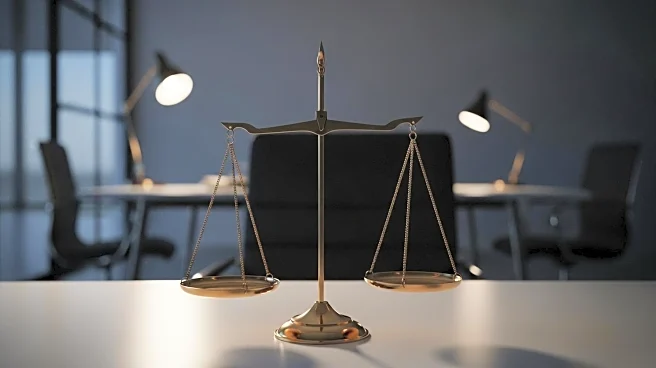What's Happening?
The presidential office under former President Yoon Suk Yeol and the Ministry of Foreign Affairs are facing allegations of unlawful interference in the selection of a law firm for a government-affiliated
foundation. This foundation manages compensation for victims of Japan's wartime forced labor. Documents obtained by Democratic Party lawmaker Lee In-young reveal that the Foundation for Victims of Forced Mobilization by Imperial Japan signed legal consulting contracts with two law firms, Shin & Kim and Barun, following the Yoon administration's third-party compensation plan unveiled in March 2023. This plan allowed a Korean foundation to pay damages on behalf of Japanese companies found liable for forced labor during Japan's colonial rule of Korea. However, some victims rejected the plan, arguing it absolved Japanese firms like Nippon Steel and Mitsubishi Heavy Industries, which had been ordered by Korean courts to compensate them. The foundation initially worked with both law firms but ended its contract with Shin & Kim before court deposits began in July 2023, reportedly due to directives from the Foreign Ministry and the presidential office.
Why It's Important?
The allegations of interference in the law firm selection process raise significant concerns about the autonomy and integrity of public institutions in South Korea. If proven true, such actions could constitute a violation of the Act on the Management of Public Institutions, which guarantees the autonomy of these institutions to ensure responsible management. The potential abuse of power by the presidential office and the Foreign Ministry could undermine public trust in government operations and legal processes. This situation also highlights the ongoing tensions surrounding compensation for wartime forced labor victims, a sensitive issue in Korea-Japan relations. The outcome of this investigation could impact diplomatic relations between the two countries and influence future compensation negotiations.
What's Next?
Democratic Party lawmaker Lee In-young has called for an audit and criminal probe into the alleged interference. The Anti-Corruption and Civil Rights Commission has responded, indicating that improper solicitation may have occurred if a public official's request led to an illegal act. The investigation will likely focus on whether the presidential office and the Foreign Ministry's actions constitute obstruction of the foundation's legal duty under the State Public Officials Act. The findings could lead to legal repercussions for those involved and potentially prompt changes in how public institutions manage their operations and contracts.
Beyond the Headlines
The allegations of government interference in the law firm selection process could have broader implications for the legal and ethical standards governing public institutions in South Korea. This case may prompt a reevaluation of the checks and balances in place to prevent undue influence from political entities. Additionally, the controversy surrounding the compensation plan for wartime forced labor victims underscores the complex historical and diplomatic challenges that continue to affect Korea-Japan relations. The resolution of this case could set a precedent for how similar issues are handled in the future, potentially influencing international perceptions of South Korea's commitment to justice and transparency.









